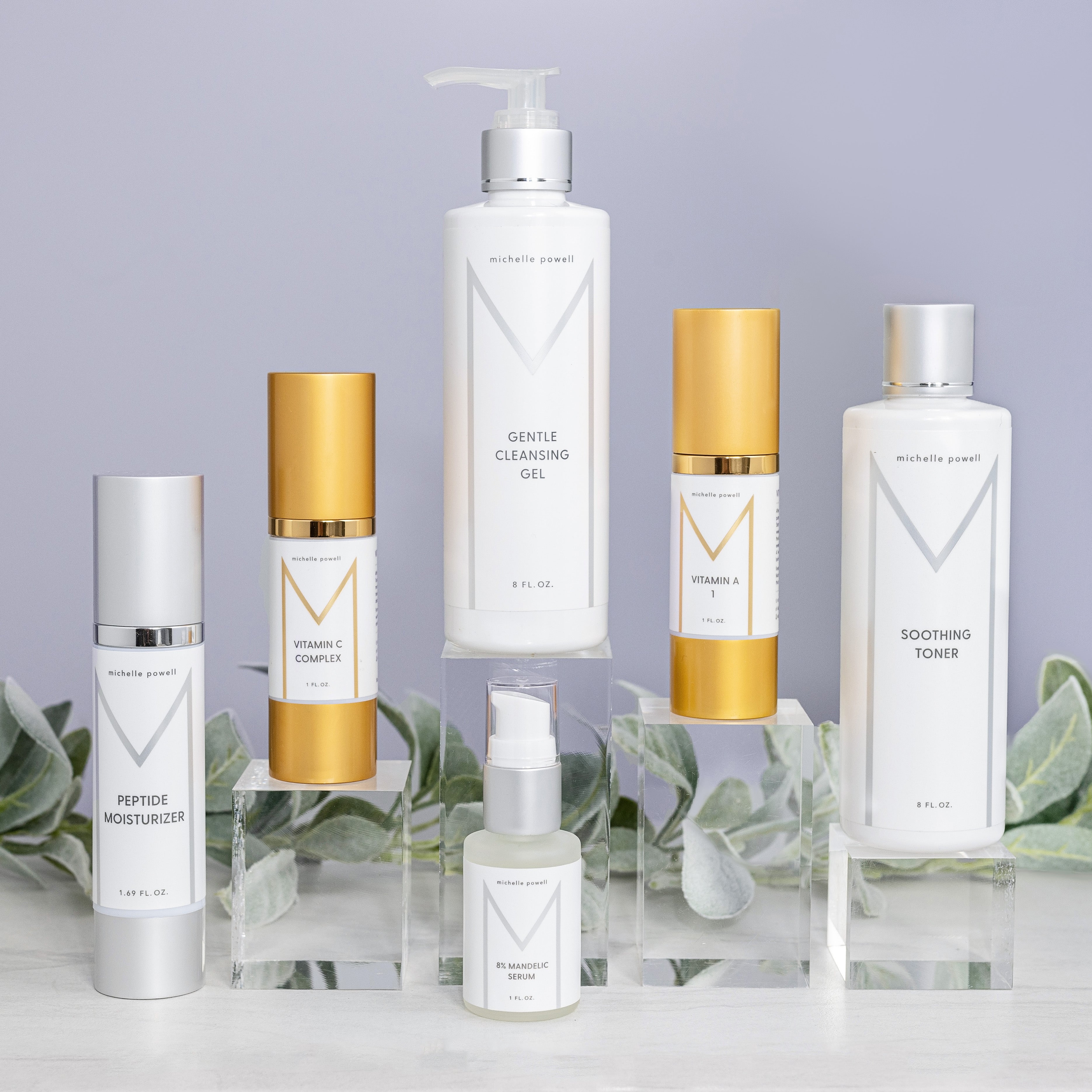Article: 11 Acne Myths Debunked: What Really Causes Breakouts?
11 Acne Myths Debunked: What Really Causes Breakouts?
1. Myth: Frequent cleansing prevents breakouts.
Truth: Cleansing your face multiple times per day will not prevent breakouts and can even have negative consequences. Over-cleansing can irritate and dehydrate your skin, causing more harm than good. Breakouts occur deep within the pores as dead skin cells accumulate and clog them. To effectively prevent breakouts, it is important to use products that can penetrate deeply into the pores and address the underlying causes of acne formation.
2. Myth: Acne is caused by poor hygiene or dirt.
Truth: The formation of acne starts at the root of the pore, and it's important to understand that acne-prone pores shed dead skin cells five times faster than normal pores. Contrary to popular belief, dirt or surface skin oil doesn't play a significant role in the formation of acne. Even if one washes their face multiple times a day, it won't prevent acne from forming. It's important to remember that you can manage acne with the right products that can penetrate deep into the pore to stop acne in its tracks.
3. Myth: Acne is caused by candy and deep-fried foods.
Truth: A diet high in iodides, such as the salt commonly found on french fries, can exacerbate acne, but it is important to note that neither candy nor fried foods are the direct cause of this skin condition. If these foods were the sole culprits, every teenager in America would be affected by acne. Acne is actually an inherited disorder primarily associated with pores. While dietary factors can influence the severity of acne breakouts, it is crucial to understand that acne is a complex condition influenced by multiple factors, including genetics, hormonal changes, and individual skin characteristics.
4. Myth: Acne is a cosmetic disease.
Truth: Any disease that has the potential to cause permanent disfiguring scarring on the face goes beyond being considered a mere "cosmetic" issue. Its impact on the self-esteem of those who suffer from acne runs deep, to the point where some individuals feel too self-conscious to leave their homes or attend school. Moreover, certain individuals may experience staph infections alongside their acne, posing severe health risks if left untreated. Additionally, some people resort to taking medication like Accutane or its equivalents, despite the potential for a range of dangerous side effects. Acne, as a disease, demands serious attention and recognition for its significant physical, emotional, and social implications.
5. Myth: You just have to let acne run its course.
Truth: While it is rare, some individuals never outgrow their acne. Those predisposed to acne must approach it as a condition to be managed rather than cured, similar to other diseases that cannot be entirely eradicated but only controlled. For such individuals, strolling into a beauty store like Sephora and freely selecting skincare or makeup products may not be a feasible option. I advise people to stick to the acne regimen I provide them and then explore the enjoyable aspects, like experimenting with eye shadows, lip glosses, and other cosmetic items. In some instances, the potential risk of permanent scarring caused by acne outweighs the desire to venture into uncharted skincare territory. Why take chances when acne can be effectively managed with the right products? Numerous studies have indicated that individuals with acne have challenges securing higher-paying jobs and are often overlooked for promotions. Our society tends to reward those perceived as healthy and attractive, whether or not it is fair. If there are steps you can take to address a condition like acne, seeking assistance from an acne expert is a highly recommended course of action to regain control over your skin.
6. Myth: Spot-treating zits with benzoyl peroxide is effective.
Truth: Benzoyl peroxide is most effective as a preventative measure for acne. Its action involves killing bacteria and dissolving microcomedones within the pores before they have a chance to establish themselves. More than merely spot-treating existing acne lesions is required, as it fails to address the potential acne formation in other pores. It is essential to understand that acne takes time to develop, with the process taking up to 90 days before it surfaces. Neglecting to treat specific areas leaves them vulnerable to the initiation of acne. By utilizing benzoyl peroxide comprehensively, you can proactively target the underlying factors contributing to acne formation, ensuring a more comprehensive and preventive approach to managing this skin condition.
7. Myth: Acne can be cured.
Truth: Acne is a condition that does not have a definitive "cure." For some individuals, it becomes a lifelong management process. At the same time, most people eventually outgrow it at some stage. However, it remains unpredictable when and for whom this transition will occur. Like managing other diseases through medications or lifestyle adjustments, acne demands attention until effective control measures are followed. Even then, you must carefully monitor what you use on your face. If left unaddressed, acne can wreak havoc on your facial skin. The encouraging news is that you can bring acne under control by utilizing appropriate products tailored to your specific acne type. It is advisable to seek guidance from an acne expert who can assist you in finding the right products and establishing an effective skincare routine.
8. Myth: Toothpaste can cure acne.
Truth: The belief that toothpaste can effectively prevent acne is indeed an urban myth. Although toothpaste may be able to dry out existing acne lesions, it lacks any ingredients that can proactively prevent the formation of acne. Furthermore, if you're seeking a spot treatment, it's important to note that superior alternatives are available. Toothpaste can cause skin irritation and burns, especially considering many brands contain sodium lauryl sulfate. This known ingredient can clog pores. It is advisable to refer to a list of pore-clogging ingredients and opt for more suitable products that address acne concerns more safely and effectively. Relying on toothpaste as a solution for acne is, at best, a temporary fix that fails to address the underlying problem.
9. Myth: Moisturizer will make you break out.
Truth: The fear of moisturizers among individuals with acne is understandable, given that many moisturizers contain pore-clogging ingredients. However, it is essential to note that any product potent enough to combat acne effectively will inherently have a drying or dehydrating effect. To mitigate this problem, here are a few steps you can take. Firstly, start slowly with strong products to allow your skin to acclimate to them. Secondly, incorporate a moisturizer into your daytime routine to provide your skin with the necessary moisture and prevent excessive irritation or dryness from your acne products. Be sure to choose a moisturizer with no non-pore-clogging ingredients from our list. Sometimes, one can mix certain moisturizers in a 1-to-1 ratio to reduce initial dryness or irritation. For instance, my peptide moisturizer is beneficial in minimizing redness and aiding in the healing of acne lesions. Equally, my All Day Quench moisturizer includes chaga mushrooms, known for their ability to repair the skin's barrier and restore the DNA of compromised skin cells.·
10. Myth: Products need to tingle or sting to know they are working.
Truth: Indeed, it is essential to acknowledge that potent products are necessary to manage acne effectively. However, if these products are excessively strong, they can lead to skin irritation and even burns. It is crucial to understand that a stinging sensation indicates irritation. Should such irritation occur, it becomes imperative to discontinue all products contributing to your skin's clarity and allow yourself a few days of respite. Unfortunately, this interruption in your skincare routine can hinder your progress in achieving clear skin. Always remember the significance of safeguarding your skin barrier at all times. To ensure the appropriate strength of products suitable for your specific skin type and acne condition, it is advisable to consult an Acne Specialist who can guide you accordingly.
11. Bonus Myth: Accutane™ will cure your acne, and you will never break out again.
Truth: We frequently encounter individuals at our clinic who have undergone multiple rounds of Accutane (or its generic equivalents) only to experience a recurrence of breakouts. While isotretinoin (Accutane) can be a lifesaver for some people, it is crucial to recognize that it is not the magical solution many perceive. Even after discontinuing the medication, some individuals may face long-term side effects, including permanent issues such as scarring, vision loss, or damage to internal organs. Furthermore, mood changes like irritability or sadness may be experienced by those taking isotretinoin, and there have been reports of severe mental health complications such as depression, psychosis, and suicidal thoughts. I believe achieving and managing clear skin through topical products can be up to 95% effective. Considering this, why wouldn't you explore that option before putting your body at risk?
Shop Our Collection designed to work with Acne Prone Skin.



Leave a comment
This site is protected by hCaptcha and the hCaptcha Privacy Policy and Terms of Service apply.